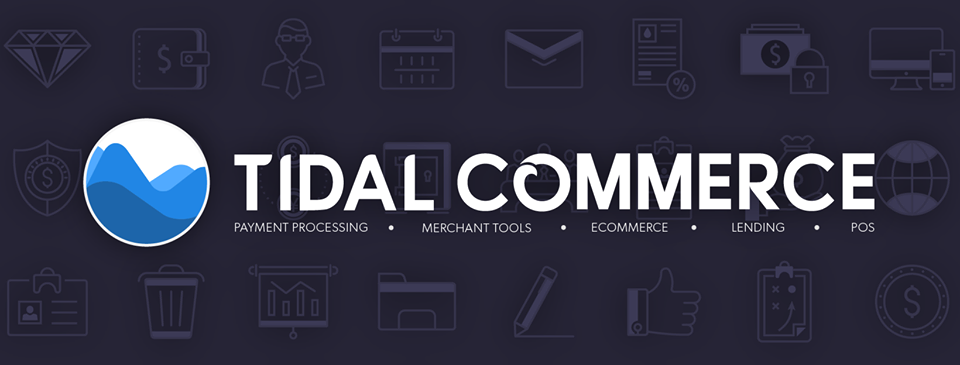You might not be familiar with the term EMV (Europay, MasterCard and Visa), but you will probably be using it in the very near future if you aren’t already. It is the global standard for chip-based Debit and Credit Card transactions.
A joint venture between Europay, MasterCard and Visa to ensure security and acceptance across the globe so that MasterCard and Visa Cards can continue to be used everywhere. Despite the US’ slow adoption of the technology, it has many benefits, such as evidence that it can significantly reduce fraud, and has been labeled the future within this industry.
To get a better understanding of this rising technology, we spoke with Mark Spirek, the Cheif Marketing Officer of Tidal Commerce, a merchant solutions company that focuses on helping small and medium-sized businesses grow.
Globally, 58.9% of transactions are EMV, with the US coming in last for the number of transactions. Why do you think adoption within the US has been slower than other parts of the world?
The push for EMV in the US, only really began when the ‘EMV Liability Shift’ in October of 2015. Meaning the card brands (like Visa and MasterCard) no longer afford protections to merchants in case of fraud. If a merchant doesn’t use EMV for a transaction where it is available the merchant would be wholly liable for any fraud perpetrated on that transaction. Before this, US merchants and customer where not familiar at all with the concept of chip cards.
Many other countries outside the US, have been using EMV terminals for many years so they have been used to the concept of dipping cards instead of swiping. For example, pay-at-table for sit down restaurants is very common outside of the US. But almost non-exisitant here.
Also many merchants have legacy payment processors and POS hardware that need to be upgraded in order to support EMV payments, this may cost many thousands of dollars, depending on their set up and they weigh this cost against the possible liability.
What are the benefits of EMV over alternatives that are out there?
The primary advantage is security and protection from fraud and data breaches. EMV is a much more secure technology than a magnetic stripe card. Typical counterfeiting
How do you see this industry changing in the US over the next 5 years?
We see the biggest change in the industry to be the increasing adoption of NFC/Contactless payments, digital wallets, and data. Especially as millennials become an increasing part of the buying public and mobile devices become more a part of our lives, systems like Apple Pay and Android Pay have see a big uptick. This more convenient and secure for both the customer and merchant. It speeds checkout since there is no waiting for the card to read, and keeps the card number secure because these systems send a secure token instead of the card number to the terminal, making it easy to replace if lost, stolen, or breached.
A side effect of the EMV upgrade in the US, is that many merchants have upgraded their legacy terminal to more modern systems that support EMV and NFC. So contactless acceptance needed to support Apple Pay and Android Pay has increased greatly. These upgraded system, like our own Smart Terminal, can even replace receipts by texting or emailing proofs of purchase and merchants can view this data online. This allows merchants to take advantage of their customer data like never before, to gain insights on products, promotions, and marketing.
Where do you see Tidal Commerce fitting into this change?
We are at the forefront of offering modern hardware, software, and services to our merchants that take advantage of the latest payment technologies that allows our merchants to run their businesses more efficiently and focus on growth. We also continually provide education through our Merchant Learning Center to keep merchant up to date on the latest trends in the industry.
What do you consider Tidal Commerce’s greatest achievement within the past 6 months?
We have recently launched our HIPAA Help Center product. Which helps our merchants in the Healthcare space stay on top of their compliance needs like never before. This is a completely online product that let’s Healthcare merchants streamline their mandated HIPAA process and avoid costly fines and audits. This furthers our mission to help merchants grow their business by providing great software tools to run their business more efficiently.
Can you give an example of a company or case study that has really benefited from your service?
Sure! We recently upgraded Wise Guys Vapes (a chain of vape stores in the Chicago area) with our new Smart Terminals and they love them! This enables them to be more modern, mobile, and customer centric. The Smart Terminal includes NFC and EMV and an Online Dashboard so they can see activity across all their 9 locations.
You can see a video case study here
Have you had any constructive feedback from customers, and if so what are they interested in seeing?
The biggest feedback we see with merchants switching to us from other processors is that they have to connect and use so many dispersant systems to get a full scope of their payment data. Their payment processing reports and statements might be one dashboard, their customer vault might be another login, they may have separate invoicing software, a separate gateway for their website, and another plugin for their website to connect their gateway. This turns into a blame game with customer service with each vendor blaming another as well as the merchant never knowing where to go to get the info they need. We endeavor to solve this with our merchant dashboard that is a single point that connects every piece a merchant needs to take payments and our staff consists of payment experts who can help merchants sort out this confusing landscape.









Show Comments